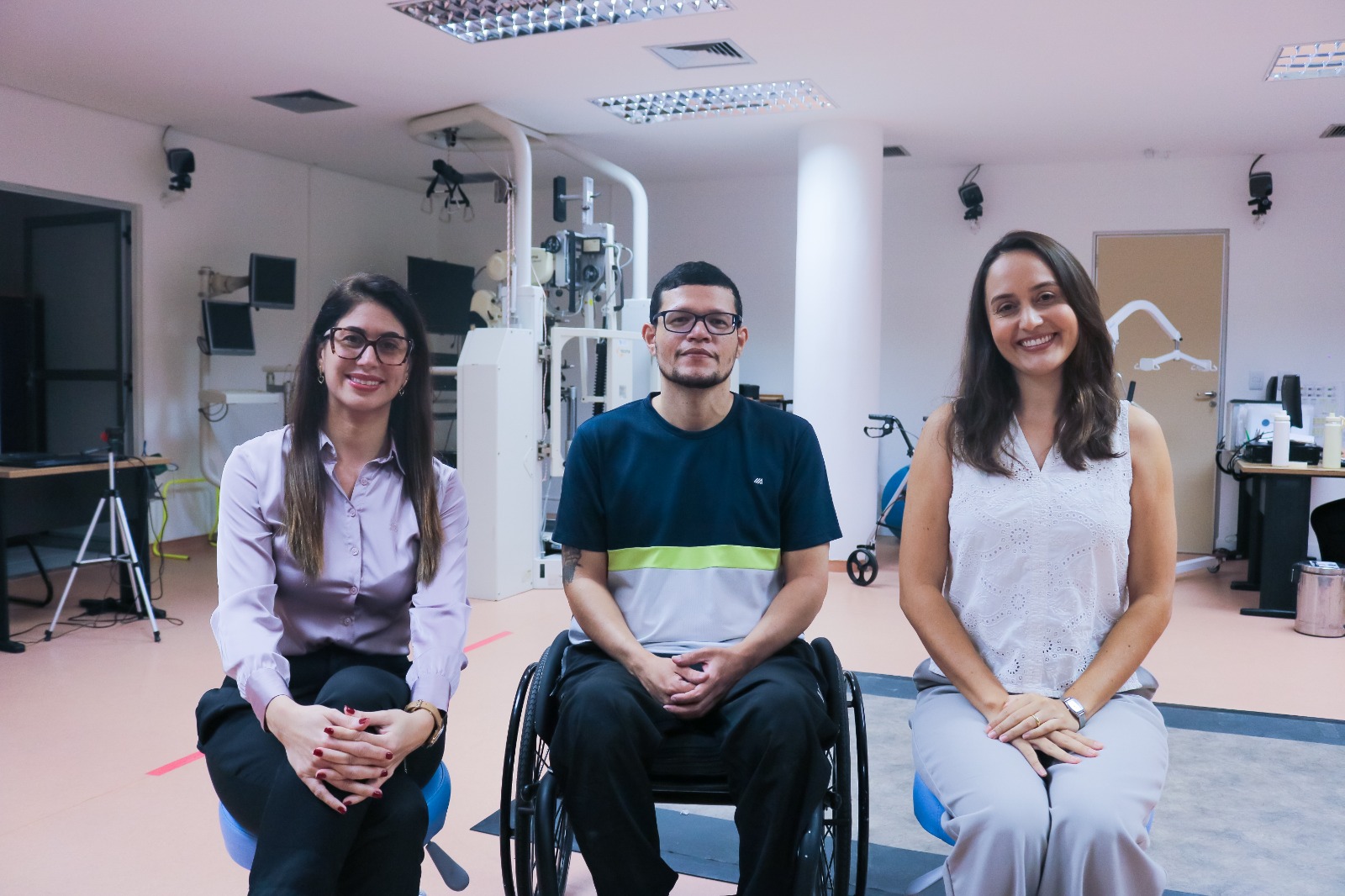Patients assisted by the Clinic for Adult Spinal Cord Injury at the Santos Dumont Institute (ISD) will have the opportunity, many of them for the first time, to visit Solar Ferreiro Torto, one of the most important museums in Rio Grande do Norte, this Friday, the 1st of October. The action is alluding to September 5, entitled World Spinal Cord Injury Day. The visit aims to provide a moment of entertainment for the patients treated at the Institute and, even more, to draw the attention of society and public managers to the architectural barriers that impede the free movement of wheelchair users.
“We will do a collective activity with patients following all biosecurity rules, such as the use of masks and gel alcohol. During the visit to Solar Ferreiro Torto, we will discuss the difficulties of wheelchair users in accessing tourist attractions, expanding their social participation, accessibility and other issues that are part of these people's daily lives. We want to draw the attention of public managers to the causes that involve people with limited mobility. Our objective is to give visibility to people with spinal cord injury and their needs for social participation”, highlights the multiprofessional physiotherapist preceptor of the ISD, Heloísa Britto.
In addition to her, the project Rodas da Vida is being developed through the ISD Adult Spinal Cord Injury Clinic, psychologist Miliana Galvão, social worker Alexandra Lima and neuropsychologist Joísa Araújo. Currently, about 40 patients, from 18 to 60 years old, are assisted. These are men and women with traumatic spinal cord injury, caused by a firearm or car accident, for example; acquired by disease through infections, tumors; or congenital, as is the case of myelomeningocele.
History
The visit to the museum is the result of a partnership between Instituto Santos Dumont and Solar Ferreiro Torto. On the occasion, participants will have the opportunity to learn a little more about the rich history of the municipality of Macaíba, its glorious past with figures such as Augusto Severo de Albuquerque Maranhão, politician and inventor of the airship Pax, born in the municipality in 1864. In addition to the poet Auta de Souza, author of the book of poems Horto.
The Solar Ferreiro Torto museum is located near the Jundiaí River. Formerly, it was the seat of Engenho do Ferreiro Torto. The building was built in the 17th century, then receiving the name Engenho Potengi, becoming the second sugar cane mill in Rio Grande do Norte.
The site was the scene of numerous battles involving Dutch, Portuguese, Indians and African slaves. The building was practically destroyed. Only in the 19th century, in 1845, was it reformed and received the current name of Solar do Ferreiro Torto, serving as a home for many noble families of the city.
According to Aécio Pereira, son of Bruno Pereira (former owner of the establishment), the name Ferreiro Torto was inspired by a very tall and crooked coconut tree that existed in the vicinity of the construction, and, near the tree, a blacksmith had a tent where served travelers who needed to maintain the horseshoes of their animals. This narrative is presented in the book “O Giramundo”, by Aécio Pereira.
For a long time, the place served as a residence and until the end of the 70s of the 20th century it was transformed into a museum of sacred art, being maintained by the José Augusto Foundation. In the same period, Solar Ferreiro Torto toppled and restored the old colonial mansion.
In the 1980s, the building was again renovated and adapted to function as the seat of the Municipal Executive Branch. Thus, Ferreiro Torto was the seat of the Municipality of Macaíba from 1983 to 1989.
Then the building was transformed into a municipal museum. But shortly after it was closed. The Solar was reopened in April 2003, bringing together a large exhibition of photographs that portray the History of Macaíba and of illustrious children who were prominent in local society.
Today, the site receives frequent visits from researchers of History and Biological Sciences, groups of students, families and tourists in general from various parts of the State, the country and the world. Solar Ferreiro Torto is surrounded by a preserved stretch of Atlantic Forest, typical vegetation of the coastal area of Brazil. Around it, there are several ecological trails that the visitor can enjoy, in addition to enjoying the view of the Jundiaí River. Therefore, the space is ideal for those who like History and the Environment.
Text: Ricardo Araújo / Ascom – ISD
Images: Ricardo Araújo / Ascom – ISD
Communication Office
comunicacao@isd.org.br
(84) 99416-1880
Santos Dumont Institute (ISD)
It is a Social Organization linked to the Ministry of Education (MEC) and includes the Edmond and Lily Safra International Institute of Neurosciences and the Anita Garibaldi Health Education and Research Center, both in Macaíba. ISD's mission is to promote education for life, forming citizens through integrated teaching, research and extension actions, in addition to contributing to a fairer and more humane transformation of Brazilian social reality.













